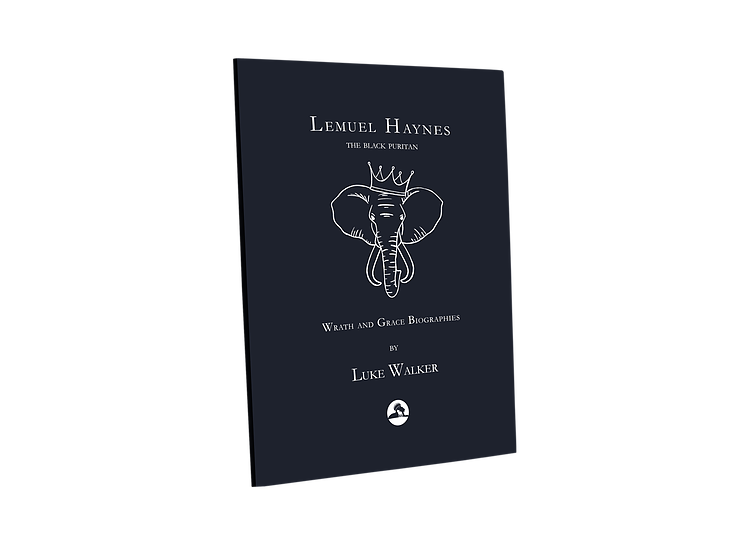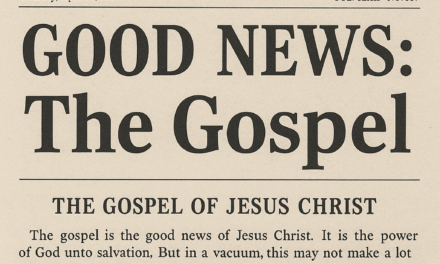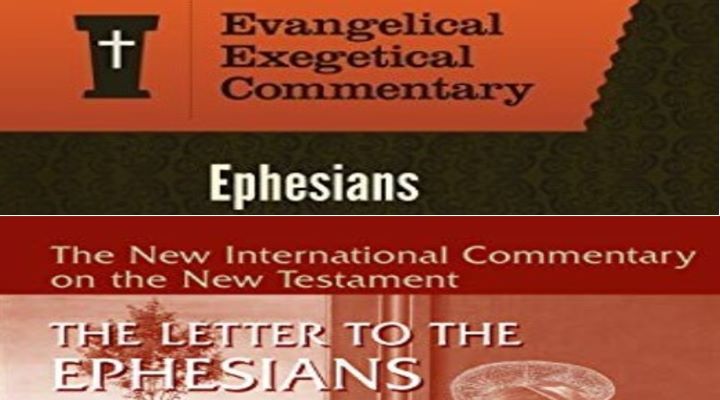I’ve mentioned previously that we are currently going through the book of Ruth at our church. I had originally planned on 12 sermons, but we are currently in week 17! God’s Word is a treasure, and we have been blessed by the vast richness set before us in the book of Ruth. Today, I’d like to share a little from Ruth 4:1-12.
Up to this point in Ruth, we’ve seen a lot of foreshadowing of what Boaz would do. But today, we see his redemption in action. Now, there are certainly some things that are different from today culturally, and some things maybe even be hard for us to fully grasp. But we can see the big picture.
And if I may, here is the biggest picture: When the author of Ruth was writing this book, he recounted this story in such a way that the readers would see that Boaz points us forward to another redeemer. No, the author would not have known that this redeemer’s name was “Jesus”, but he was looking forward to a Messiah nonetheless (all Old Testament saints were). It’s possible the author thought the Redeemer would be David. But the point remains: As we read this text we cannot help but anticipate another Redeemer for God’s people.
And on this side of the cross, we definitively know that Redeemer’s name: Jesus. So, we will briefly expound this text with that in mind. First, let’s focus on Boaz. We see four things about Boaz’s redeeming work that we want to focus on in this post.
Boaz had:
The Prerogative to Redeem – Ruth 4:1-6
In this scene, we have Boaz showing forth his prerogative to redeem. He is showing us his right to redeem. This scene isn’t just a bunch of guys hanging around at the diner drinking coffee. The gate of the city would have been a place for legal transactions. Boaz didn’t have a reckless love whereby he would whisk Ruth away and ride off into the sunset.
Boaz’s love would fulfill all legal obligations. He would redeem Ruth rightly. Boaz acknowledges a nearer kinsman, but this “friend” is not worthy. Boaz exposes that fact and, in front of witnesses, this other redeemer relinquishes his claim — thus giving Boaz the full right to redeem.
Boaz had the prerogative to redeem. 2ndly, Boaz had:
The Power to Redeem – Ruth 4:7-9
The other redeemer had the right to redeem but he did not have the power. The cost was too much. But Boaz has the right and ability to redeem. There is a cost to Ruth and Naomi’s redemption. We see economic language here in the words “buy” and “bought”.
Furthermore, we are reminded in all of this that Ruth and Naomi are powerless. This is a legal arrangement and Naomi and Ruth are not present. They are in need of redemption, but they are powerless to work this redemption themselves. They need a powerful redeemer to pay the cost of their redemption. They find that redeemer in Boaz.
Boaz had the Prerogative to Redeem, the Power to Redeem and:
The Pleasure to Redeem – Ruth 4:4-6
Boaz is glad to pay the cost because he wants to redeem. He is an able and willing redeemer. Boaz is willing to publicly acquire a bride in Ruth. He does all of his work in the open. He does not merely show his willingness to Ruth and Naomi, and then hide in public. He shows it to the whole town. (Ruth 4:9-12).
With this sandal exchange, the legal transaction is complete. The rightful redeemer has purchased his bride. Boaz had the prerogative to redeem. He had the power to redeem. He had the pleasure to redeem. Finally, he had:
The Purpose to Redeem – Ruth 4:10-12
The purpose of Boaz’s redemption is progeny. “I have bought Ruth to be my wife to perpetuate the name of the dead…”
It was a terrible tragedy to have one’s name cut off in Israel. To have no descendants. To be forever forgotten and seemingly share no part as a family in the covenant promises of God. But Boaz says he will redeem Ruth so that won’t happen,and the people rejoice with him and give him their blessing.
Boaz and Ruth will be married. She will leave the house of Naomi and enter the house of Boaz, and the two will become one flesh. And the townsfolk are saying “May you have many offspring!” (More could be said about Leah, Rachel, and Tamar, but that’s for another post).
This whole historical event points us to the glory of our wonder-working God. His providential hand is all over the book of Ruth. And one of the most beautiful things about this story is that it points us forward to a greater redeemer than Boaz. And we said at the beginning that we know that greater redeemer is Jesus. Jesus is the kinsman Redeemer we need.
Jesus has:
-
The prerogative to redeem
Boaz took care of this matter legally. How much greater does Jesus have the legal right to redeem us. Boaz did not have an obligation to redeem, but he had a right. Likewise, Jesus is not obligated to redeem us but it is His right to do so. And in His right to redeem us Jesus did so legally. Not according to the demands of any human law but in accordance with the Law of God.
His love is not reckless. It is law abiding and law fulfilling. He accomplished what we could not. He upheld the legal demands of the law and paid the legal consequence for our sin.
-
The power to redeem
Not only is Jesus our rightful redeemer but He is also our mighty redeemer. You see, there is a cost to our redemption. God in Christ purchased the church with His own blood (Acts 20:28). Our redemption came at a high cost. God gave us His Son. Christ bled for us. Christ died for us.
And who did Christ pay the cost to? Some say he paid the cost to Satan. But this is not true. Rather, he drank the cup of the wrath of God. What a glorious Redeemer! Christ, the Son of God, God in the flesh, steps down to pay our redemption price with His own blood in order that the wrath of God might be justly and wholly satisfied against our sin!
This also attests to our powerlessness, doesn’t it? Ruth and Naomi were not part of the legal proceedings to procure their redemption. They were powerless to redeem themselves. In a much more hopeless way, we too are powerless to redeem ourselves. Jonathan Edwards once wrote: You contribute nothing to your salvation except the sin that made it necessary.
We who are powerless needed a powerful redeemer to save us. One who could pay the cost of our sin against a Holy God. One who could reconcile us to Himself. This is the stumbling block for many people. They refuse to accept that they are powerless, helpless, and hopeless apart from Christ. They may acknowledge they need Jesus but in their heart of hearts, they think that they contribute at least a little bit to their redemption.
But Christ is our only suitable and all-sufficient Redeemer. Any other thing you are trusting in for salvation is a false redeemer. It will not get you to God. Jesus had the prerogative to redeem, the power to redeem, and 3rdly:
-
The Pleasure to Redeem
Boaz was a willing redeemer. In a much greater way, Jesus, is a most willing Redeemer. Boaz sat before the witnesses of Bethlehem. Jesus was publicly executed on a Roman cross. He was despised and forsaken. He was shamed and scoffed at. He was beaten, battered, and bruised.
It was the will of the Lord to crush Him. And Hebrews 12:2 tells us He did this for the joy set before Him. Not that the joy was in the pain, but the joy was in the accomplishment. It. Is. Finished.
Jesus is not just a rightful redeemer. He is not just a powerful redeemer. He is also a willing Redeemer. He is more willing to redeem than mankind is willing to be redeemed.
Jesus had the prerogative, power, and pleasure to redeem. 4thly and finally he has:
-
The Purpose to Redeem
Christ is a worthy kinsman, and his purpose in redemption is progeny. Scripture calls those He redeems His church. But, you must understand, this purpose doesn’t stop at people getting saved. You see, people are saved for an even higher purpose. The chief object of the cross is not merely human redemption. That is an object, please don’t misunderstand me. But the chief object is the glory of God!
Christ bringing many sons to glory in His perfect redemption gives glory to our triune God for His marvelous grace (Ephesians 1:3-14). Redemption is a glorious work of God arranged by the Father in eternity past, accomplished by the Son in history, and applied by the Spirit through the heralding of the gospel. Salvation is magnificently Trinitarian in nature to the praise of God’s glory.
Boaz worked a delightful plan of redemption for Ruth. But this is not in the Bible so that we can ooh and ahhh over romance. This is in the bible to point us to a much greater Redeemer, namely Christ our hope. And in Christ, we find a redemption that shapes our whole reality. In Christ, we find a redemption that reconciles us to God and sees Jesus as the supreme treasure and value of the universe.
More than we want a full bank account, more than we want our fame to spread, more than we want our dreams fulfilled, we want to be glad in King Jesus. We are satisfied in all that God is for us in Christ. We are often broken and beaten up but we are not destroyed. We crawl again to the fountain of life and drink plentifully from His streams of grace.
Our past is forgiven. Our present is blessed. And our future is secure. What a glorious Redeemer we have!
This post is adapted from the notes from week 16 of our sermon series in the book of Ruth. You can access that series by clicking here.






Robert, thank you very much for the kind words, brother. That sincerely means a lot to me that your spirit…